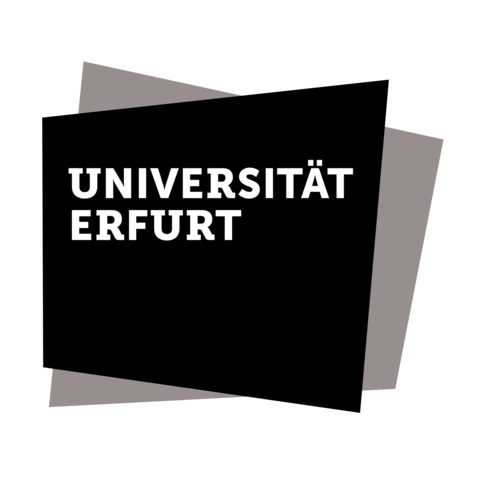Formats on the day of the fair
Open Labs
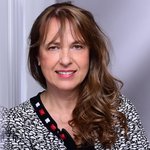
Oksana Arnold (Erfurt University of Applied Sciences): Inside FHE: Future workshop - Digitalization (AI Lab and student projects) (3.30 - 4.15 p.m., House 11) It will provide an insight into the Interdisciplinary Project Week taking place at the same time at Erfurt UAS: students will work and learn in interdisciplinary teams across the university during the week from 13.11. to 17.11.2023 - in projects they have previously chosen themselves. In the "Future Workshop on Digitalization", students will develop new offers as part of the "Children's University" series, particularly in the fields of digitalization, robotics and artificial intelligence: "We are creating a place of learning as a social space with an open interdisciplinary exchange in order to further develop ourselves, the subject matter and the teaching-learning setting in creative cooperation. We open up our learning space to society four times a semester as a children's university and work together with a primary school class on very specific questions relating to digitalization. This creates very real and learning-promoting experiential spaces for all participants, in which students in particular can apply and test the pedagogical and technical knowledge they have acquired in the first module courses in real co-constructive teaching-learning settings. Through reflection after each KinderUni, the role constellation is questioned, all forms of further student participation are discussed and the direction of subsequent knowledge building is coordinated. We always work with different media, use digital tools as learning objects and redesign our learning space as a social interaction space for the KinderUni." Interested parties can observe in the lab and also immerse themselves in the work: "As an OpenLab, we welcome interested parties to our learning and interactive workspace and, during the eTeach annual conference, we will present a lively workshop in which we want to further develop the teaching-learning setting in an interdisciplinary way. The new setting should intensify the possible insights for the children, make them more aware and thus more sustainable."
Contact: oksana.arnold[at]fh-erfurt.de
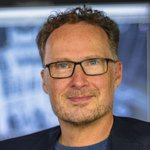
Rolf Kruse (Erfurt University of Applied Sciences): Inside FHE: Immersive Learning Lab (17.05 - 17.50) Presentation of the laboratory, the technical equipment and selected projects, activities and cooperations in the field of XR Contact: rolf.kruse[at]fh-erfurt.de
Mini workshops
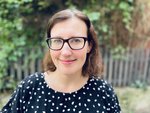
Angela Weißköppel, Head of Teaching Service Center Deputy Project Manager Curriculum Innovation Hub & Dr. Nadine Böhme, University of Erfurt and Fellow of the Stifterverband funding program: "How universities tick - shaping change processes at universities" (14.30 - 15.15, Room 6.1.36 or BBB1) In a constantly changing world, the question of the adaptability of universities is of crucial importance. The workshop "How universities tick - shaping change processes at universities" addresses precisely this issue. It examines the extent to which universities are able to initiate and implement change. Participants can expect an examination of the specific structures and cultures of universities and how these influence change processes. The focus will be on changes in the area of (digital) university teaching. They will discuss how innovations in teaching can be successfully initiated and integrated. Using examples and case studies from the participants, conditions for success and success factors will be highlighted. Together, concrete steps will be developed to successfully shape change processes at universities, especially in the context of teaching.
Contact: nadine.boehme[at]uni-erfurt.de
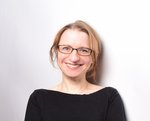
Anika Limburg, Head of the LehrLernZentrum at RheinMain University of Applied Sciences: Artificial intelligence in higher education "One year of GenAI on campus: review and outlook on transformation processes in higher education" (4.30 pm, Room 8.2.01 or in the ZOOM room) The workshop will argue that universities and individual stakeholders or degree programs are facing developments in the field of generative AI in three different ways: In addition to fundamental innovations on a content and methodological level, which also require curricular adjustments, there are both an almost unnoticed new practice of learning and writing in studies and science as well as broad areas in which generative AI remains completely unconsidered and unreflected. The workshop aims to explore these different developments and discuss how these parallel worlds can be brought closer together. Dr. Anika Limburg holds a doctorate in German studies and is head of the LehrLernZentrum at RheinMain University of Applied Sciences. In this role, she deals with the anchoring of interdisciplinary skills in studies, in particular digital key skills. Since 2019, she has been working on the implications of generative AI for science and university teaching, both scientifically and practically. She is also a founding member of VK:KIWA (Virtual Competence Center: Artificial Intelligence and Scientific Work. Writing, teaching and learning with AI - tools and techniques for education and science)
Contact: Anika.Limburg[at]hs-rm.de

Anne Brannys-Droste, Bauhaus learning space team Bauhaus-Universität Weimar: Vis-à-vis - speaking in between (17.05 - 17.50, Room 6.1.21 and BBB2) Lernraum.Bauhaus/Hybrid Learning Studio The Hybrid Learning Studio at the Bauhaus-Universität Weimar is a core component of the StIL-funded project Lernraum.Bauhaus, in which the opportunities and challenges of hybrid teaching and learning are explored and the potential of collaborative learning and working in real and virtual learning spaces is explored with a focus on the aesthetics and impact of the interior. In combination with mobile solutions, so-called pendants, the definition of "hybrid" will be expanded to enable connections between different places and people.
Contact: anne.brannys-droste[at]uni-weimar.de
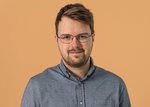
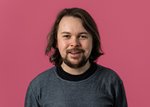
Lars Gerber and Lasse Rabe, University of VechtaChallenges in establishing hybrid co-learning spaces as creative spaces. A field report. (Room 6.1.21 and BB2) Hybrid learning spaces are of great importance in today's university landscape. This poster contribution highlights the development and establishment of co-learning spaces at the University of Vechta. These spaces can promote student interaction and offer creative opportunities for students to engage with their studies. They combine physical and digital environments and are part of a "hybrid campus". These spaces can be designed flexibly and are primarily available to students. In addition, accompanying events such as hybrid writing events, e-sports events and student self-administration committee meetings are organized for, with or by students in the co-learning spaces. The article sheds light on the didactic considerations and technical decisions behind the co-learning spaces and discusses the challenges involved in their introduction as well as accompanying formats to reflect on and further develop the space ideas and forms of use. Contact: lars.gerber[at]uni-vechta.de
Introductory workshop at the trade fair stand
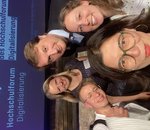
Uwe Reckzeh-Stein and Stella Berendes, Hochschulforum Digitalisierung: "Decoding the Disciplines" with the Hochschulforum Digitalisierung and HFDLocal (3.30 - 4.15 p.m., stand 1) In particular, the HFD will present its regional networking and highlighting format "HFDlocal". The aim is also to highlight formats and expertise from other university regions that HFDlocal has indexed and would now like to make visible to a supra-regional target group and the community. For example, the teaching consultancy and development format "Decoding the Disciplines", whose expert network is based at BayZiel in Munich. Contact: reckzeh[at]hrk.de ; berendes[at]hrk.de
Theme islands
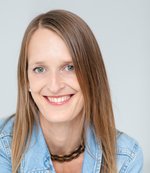
Beate Schnabel, University of Koblenz: Education in the digital world: New approaches to GS teacher training at the University of Koblenz (2.30 p.m., foyer on the 1st floor) Digitalization has long since found its way into all areas of life and education can and must also face up to this new challenge with all its potential and problems. In order to optimally prepare future primary school teachers for the use of digital media in the classroom, a new module on the topic of "Digitalization in subject teaching" has been added to the primary school teacher training course at the University of Koblenz since the winter semester 2022/2023, which is integrated into the Bachelor's degree course as a compulsory sub-module. There are also other seminars that focus on learning with and about digital media in subject teaching. The aim of the seminar concepts is to sensitize prospective teachers to the use of new technologies, to strengthen their personal IT and digital skills and to show them the methodological and didactic potential of effective use in subject teaching. Contact: bschnabel[at]uni-koblenz.de
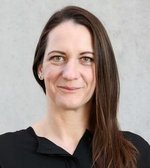
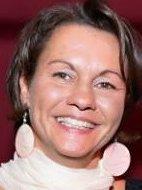
Maren Würfel and Dagmar Brand, University of Erfurt: Eduroom: Workshop for media education as an innovative place of learning to promote media-related skills - concept and example of implementation (2.30 p.m., foyer on the 1st floor) With the 'eduroom', the University of Erfurt has created an innovative educational space with excellent media technology that primarily aims to promote the media pedagogical skills of students and teachers as part of academic teacher training. In our article, we show the conceptual considerations on which the eduroom is based, how the room was specifically designed and which pedagogical concept is being pursued. We use an example from a course in childhood research to show how the eduroom concept is appropriated and implemented in practice, in which research-based learning and media education go hand in hand.
Contact: maren.wuerfel[at]uni-erfurt.de ; dagmar.brand[at]uni-erfurt.de
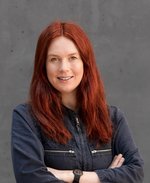
Sophie Foster, Bauhaus-Universität Weimar: Is it Worth it? Possibilities of Virtual Gathering Platforms Within Academic Teaching and Learning Settings (2.30 p.m., foyer on the 2nd floor) With the rapid shift of online teaching formats, core elements of community and social interaction has been a challenge to maintain. To address this issue, a study was initiated to assess the virtual gathering platform WorkAdventure, to understand its effectiveness within academic settings and the support needed for teachers and students to optimize its use. Derived from the Metaverse, WorkAdventure aims to enhance communication and engagement by enabling users to create immersive worlds for online collaboration. Following initial case studies in SuSe23, feedback led to the development of a 15-user template. The eTeach Jahrestagung 2023 offers an opportunity for participants to learn more about this program and experiment with the template through hands-on guidance, in the hope that future studies can be scheduled in the coming months.
Contact: sophie.foster[at]uni-weimar.de
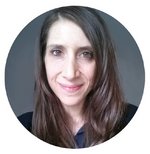
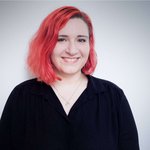
Susanne Karsten, Erfurt University of Applied Sciences & Kathrin Knutzen, Ilmenau University of Technology: Potential of immersive teaching/learning environments and virtual reality in the educational landscape (2.30 p.m., foyer on the 2nd floor) As part of the ILT+ theme island, teachers and interested parties will be introduced to the potential of immersive teaching/learning environments and virtual reality in the educational landscape. You will have the opportunity to explore and test the virtual knowledge space (learning space) created by us in the "Immersive Learning Platform Thuringia+" (ILT+) project. You will gain an insight into the theory behind the new technology and learn about the practical tools and resources needed to design and create immersive teaching-learning environments in order to integrate them effectively into the curriculum. The Virtual Knowledge Space will also address the didactics, communication and collaboration of immersive learning spaces. It will show how virtual environments and collaborative learning spaces that are conducive to learning can be designed to enable location-independent access, open exchange and creative cooperation. There will be ample opportunity for feedback, discussion and the exchange of ideas.
Contact: susanne.karsten[at]fh-erfurt.de ; kathrin.knutzen[at]tu-ilmenau.de
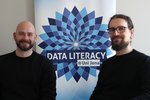
Volker Schwartze and Martin Kerntopf, Friedrich Schiller University Jena: Developing skills in the field of data literacy alongside studies through the modular combination of self-study courses and classroom input (5.05 pm, foyer on the 1st floor) The Data Literacy project covers basic skills for the planned and critical handling of data and the knowledge gained from it, which are necessary to be able to orient oneself in a world increasingly shaped by data. Due to the wide range of topics, however, data literacy can usually only be covered in fragments during studies. As part of the topic island, we will provide insights into the study-related offers for students organized by the Data Literacy Jena (DaLiJe) project at the University of Jena. We will show how students have the opportunity to strengthen their data literacy in a self-directed manner according to their own interests and time management through a combination of modular online and face-to-face courses.
Contact: volker.schwartze[at]uni-jena.de; martin.kerntopf[at]uni-jena.de
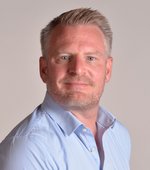
Ulrich Hofmann-von Kap-herr, RheinMain University of Applied Sciences: OnePageLayout. A construction kit for teaching/learning content and scenarios (5.05 p.m., foyer on the 2nd floor) Collective or formative assessments can be implemented with various software products and must be contextualized in order to map learning success. The prototypical interface OnePageLayout integrates different teaching/learning modules [exercises, films with contextual questions, surveys, upload of submissions, collaborative writing, etc.] and media [text, image, film, audio] and relates them in ILIAS using the learning success control function. The modular structure of the interface makes it possible to create individualized teaching/learning content and teaching/learning scenarios: All elements are editable, the layout can be expanded, the design is responsive and the interface is able to relate to the content (icon exercises).
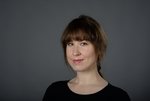
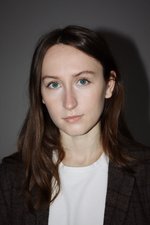
Xervenia Wagner, Magdeburg-Stendal University of Applied Sciences and Alisa Poleshchuk, Harz University of Applied SciencesHybrid³ - planning, designing and implementing synchronous-hybrid events (5.05 p.m., foyer on the 2nd floor) Synchronous-hybrid teaching can expand the university as a familiar place of learning with alternative environments, overcome spatial distances and enrich teaching and learning for teachers and students by making it more flexible. What creates new possibilities in theory is regularly associated with familiar hurdles in practice, such as complex technical setups and communication difficulties. In order to facilitate the planning, design and implementation of hybrid settings in everyday university life, the eSALSA project developed and implemented the Hybrid³ concept, which deliberately aims to provide low-threshold support. In our topic island contribution, we would like to present our concept to you and discuss possible applications and optimization potential together. We look forward to experiences, ideas and impulses from all perspectives!
Contact: xervenia.wagner[at]h2.de ; apoleshchuk@hs-harz.de


Nadine Wegmeyer and Christin Deinert, Magdeburg-Stendal University of Applied Sciences: From maxi- to mini-workshop: How to: Designing teaching and learning materials for effective learning (5.05 p.m., foyer on the 2nd floor) Creating good teaching and learning materials is no trivial undertaking - the basis for effective learning materials is a well thought-out and systematic didactic concept. So would you like to design your teaching and learning materials in such a way that your students can learn as well as possible with them? In our topic island, we will take you on a journey through the didactic world of teaching and learning material design. We will present design recommendations for multimedia learning content from teaching-learning research and would like to discuss relevant planning and decision-making steps in the didactic design of teaching-learning materials. The basis is a self-learning course we have created that enables teachers to design and create teaching-learning materials in a step-by-step, guided process. In a joint discussion, we would like to get feedback and share our lessons learned on the way from a maxi- to a mini-workshop.
Contact: nadine.wegmeyer[at]h2.de; christin.deinert[at]h2.de ;

Kai E. Wünsche, Meißen University of Applied Sciences: How an asynchronous online course becomes more interactive than a face-to-face event (5.05 p.m., foyer on the 2nd floor) Examples from digital teaching in private law will show how the interactive character of a face-to-face course can also be created in asynchronous online teaching: What considerations and simple tools that every learning management system provides can be used to create asynchronous courses that demand even more activity from students than face-to-face teaching? It is shown how an asynchronous online lecture (under ILIAS) can be created with the LMS tool "interactive book". The tools presented are available in common learning management systems such as ILIAS and Moodle. The asynchronous online lectures shown consist of short interactive learning videos, small texts in drop-down fields (so-called accordions), combined with a survey tool for students to answer questions.
Contact: kai.wuensche[at]hsf.sachsen.de
Exhibition stands
Viewing the exhibition stands
Exhibition stands (16.15-17.00, foyers on the 1st and 2nd floors and BBBPitches) Visits to the exhibition stands with the opportunity to try out and exchange ideas, with pitches and interviews on the exhibition floor.
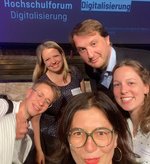

The Hochschulforum Digitalisierung and HFDlocal & the Stifterverband (Stand No. 01) In particular, the HFD will present its regional networking and highlighting format "HFDlocal". The aim is also to highlight formats and expertise from other university regions that HFDlocal has identified and would now like to make visible to a supra-regional target group and the community. For example, the teaching consultancy and development format "Decoding the Disciplines", whose expert network is based at BayZiel in Munich. The Stifterverband is the only joint initiative of companies and foundations that provides holistic advice, networking and support in the areas of education, science and innovation. As a nationwide think & do tank, the Hochschulforum Digitalisierung (HFD) brings together a broad community around digitalization in studies and teaching, makes developments visible and tests innovative solutions. To this end, stakeholders from universities, politics, business and society are networked, supported and advised.
Contact: reckzeh[at]hrk.de; berendes[at]hrk.de; Birgit.Ossenkopf[at]stifterverband.de
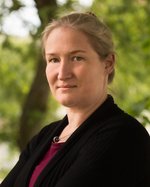
Katja Tonisch: Interactive experimentation applets and their use in basic physics teaching | Ilmenau University of Technology (Stand No. 02): Especially in engineering and physics, visual objects and experiments are an important part of teaching, which cannot easily be transferred to online learning platforms. In contrast to pure simulations, applets or applications (app or applet for short), in which a physical situation is represented graphically, offer the possibility of looking specifically at the physical principles and dependencies represented by changing parameters. On the one hand, this opens up the possibility of using such applets in classroom and online teaching to visualize physical facts. Furthermore, in conjunction with specific tasks, the active engagement with the learning content can be strengthened by the targeted manipulation of parameters by the learner in a specific observation task.
Contact: katja.tonisch[at]tu-ilmenau.de
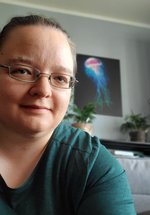
Your digital notebook - personal knowledge management as a (digital) learning tool | University of Rostock | Center for Teacher Training and Educational Research (Stand No. 03) I present a concept for personal knowledge management with digital tools based on the notepad principle. I developed this concept as part of my online course "Dein DIGITALES Notizbuch" ("Your DIGITAL notebook") and published it freely accessible via the Open University of Rostock. With the digital notebook, users can save and organize their knowledge in a note-taking tool of their choice and develop it further in the long term. This is not about everyday notes, but a method that helps to maintain an overview in the flood of information and to keep knowledge useful for years to come. This approach facilitates the understanding of interrelationships and the continuous expansion of knowledge. I would like to sensitize those interested to this valuable skill of personal knowledge management and discuss its application in everyday university life.
Contact: silvia.retzlaff[at]uni-rostock.de
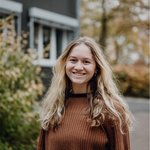
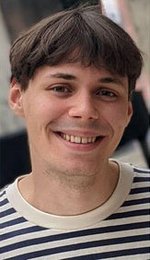

PartiDeck | Bauhaus-Universität Weimar & SRH University Heidelberg, Stifterverband (Stand No. 04) Participation in teaching and structural decision-making processes is essential for a sustainable and innovative university culture. In local and cross-university projects, we have observed a great deal of interest in input and exchange on formats for student participation. This contrasts with established examples from research and practice. The "PartiDeck" closes this gap and aims to bring participation into everyday university life. It consists of a set of participation methods and is designed to make participation simple, provide impetus and encourage exchange. You can try out the digital version of the PartiDeck at our stand. Perhaps you have other ideas for participation methods?
Contact: ludwig.david.lorenz@uni-weimar.de; alina.diem@freenet.de; Birgit.Ossenkopf[at]stifterverband.de
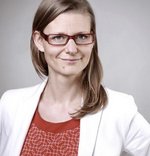
Artificial intelligence | AI Campus | Stifterverband für die Deutsche Wissenschaft e.V. (Stand no. 05) The AI Campus is the learning platform for artificial intelligence with free online courses, videos and podcasts to strengthen AI and data skills.
Contact: Britta.Leusing[at]stifterverband.de

AI sandbox / prompting station | Bauhaus University Weimar | eTeach Network Thuringia (Stand No. 06) An exhibition stand to try out AI tools in practice and encourage universal use and exchange.
Contact: svea.benett[at]uni-weimar.de
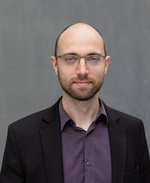
Immersive architectural design evaluation in hybrid settings | Bauhaus-Universität Weimar (booth no. 07) In this project we want to further develop the evaluation of immersive architecture design in hybrid environments. The VREVAL framework, which was developed to support VR user studies, will be used as a basis. As a new methodological tool, a possibility is being developed for a group of people to go through and evaluate an architectural design both together in one place and connected by avatars. The aim is not only to evaluate one design, but to discuss and compare several variants at the same time.
Kontact: olaf.kammler[at]uni-weimar.de
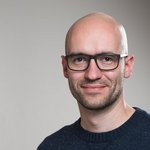
Virtual reality-based user studies in architectural education | Bauhaus University Weimar (Stand no. 08) Virtual reality makes it possible to experience a building on a 1:1 scale during the planning process. The technology therefore has great potential to capture the perspective of future building users. In order to systematically investigate the behavior and experience of buildings from the user's perspective, we have developed software that allows architects to easily design, conduct and evaluate user studies in VR. We present our experiences with the use of such VR-based user studies in architectural education.
Contact: sven.schneider[at]uni-weimar.de

360° Education @ Lernraum Bauhaus | Bauhaus-Universität Weimar (Booth no. 09) 360° tours, excursions and models have already established themselves as a learning format in the field of environmental engineering at the Bauhaus-Universität Weimar and have been continuously improved and expanded with new content as part of the "Lernraum Bauhaus" research project. Due to the low-threshold nature of their use and creation and the instructions and support we provide free of charge, they can be easily expanded and transferred to other subject areas and universities. When developing and creating the 360° applications, we were also able to involve more students, who developed and implemented them as part of their bachelor theses. The freely available 360° applications and assistance are available on the "360° Education" project page at www.360-degree.education. The underlying open access portal "360° Education" sees itself as a contact point for 360° technology-based environment models and offers freely available virtual learning activities and excursions that can be used for support in educational contexts or for self-study.
Contact: florian.wehking[at]uni-weimar.de
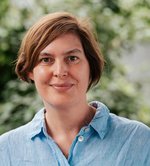

VR photo studio - Interdisciplinary teaching-learning experiment by students of design and computer science | Anhalt University of Applied Sciences | Department of Design & Department of Engineering Informatics (Stand No. 10) "VR Photo Studio" is an interdisciplinary teaching/learning project developed jointly by students from the Department of Computer Engineering and the Department of Design at Anhalt University of Applied Sciences. The project is based on a bottom-up approach with peer-to-peer learning, in which the students develop a virtual photo studio with VR technology from scratch in a collaborative teamwork. The didactic teaching/learning formats developed in the project are intended to enable students to develop, communicate and implement technological project developments in a self-motivated manner. Dissonances regularly occur in interdisciplinary collaboration, which are used productively as part of the work process and for the quality of the teaching and learning outcomes.
Contact: judith.dobler[at]hs-anhalt.de; caroline.schon[at]hs-anhalt.de
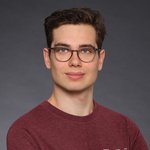
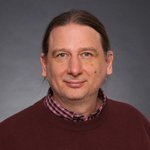
Development of a decentralized ethical security hacking lab | Schmalkalden University of Applied Sciences (Booth No. 11) An existing online laboratory at Schmalkalden University of Applied Sciences based on the open-source software "WorkAdventure" has been expanded to include a virtual ethical security hacking area. This contains computers with security vulnerabilities. The lab also contains computers with analysis software. Students can use these to find and exploit the gaps. In this way, potential damage caused by data manipulation or theft can be documented. Any security vulnerabilities found will then be rectified. The ethical security hacking area has been strictly isolated from the rest of the lab to prevent potential damage caused by incorrect or improper use of the analysis programs. This guarantees safe use of the laboratory.
Contact: t.tefke[at]stud.fh-sm.de; r.staudemeyer[at]hs-sm.de
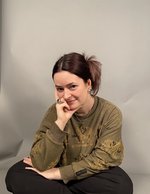
Floods of images | Bauhaus-Universität Weimar (Stand no. 12) Lilli Elisabeth Sörries is in the 3rd semester of her visual communication studies at Bauhaus University. Her installation, "TikToxic", is a walk-in experience with auditory elements that deals with the aspects of toxic multitasking and visual attention. The basis for this project is a two-hour self-observation of her cell phone consumption, documented by screenshots. In the midst of constant distraction by digital content, she attempts to develop a reflective approach to this topic. At the same time, the installation is intended to draw attention to the excessive consumption of social media and the dwindling attention span of the young generation. "TikToxic" represents a response to the challenges of a reality shaped by digital content.
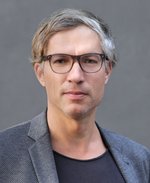
eStudio | Bauhaus University Weimar (Stand no. 13) As an open meeting space for learners and teachers, the "LernRaum:Studio" is intended to promote exchange, enable experimentation and the production of media and materials. To this end, the latest technical tools are provided for the needs of media production geared towards online and hybrid teaching. Flexible set-up options for teachers and students will provide suitable support for their own productions. Our aim is to create a platform for the development and exchange of best-practice solutions in the sense of a maker space for learning technologies, methods and applications.

The "music machine" as a dialog between man and machine | University of Music FRANZ LISZT Weimar (Stand no. 14) As part of a fellowship for innovation in university teaching, a "music automaton" is being created at the University of Music FRANZ LISZT Weimar (project start on October 1, 2023). Music theorist Jörn Arnecke is working together with composer and programmer Alex Vaughan and music computer scientist Andrew McLeod (TU Ilmenau). The aim of the project is to encourage musicians to create ideas in a musical question-and-answer game - in some ways comparable to the ChatGPT format, but specially developed for musical material. In the lab, the state of development shortly after the start of the project will be shown, tested and discussed on an interdisciplinary basis.
Contact: joern.arnecke[at]hfm-weimar.de
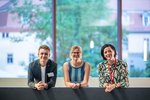
Long night of academic writing | Bauhaus Research School (booth no. 15) Once a year, the library is transformed from an everyday learning space into a project space to enable exchange and encounters at eye level. Experimental approaches such as virtual readings, workshops, pop-up exhibitions and writing labs are used to teach writing skills in a wide variety of teaching and learning settings. This creates opportunities for cooperation between students, teachers and guests from the academic and non-academic environment. In 2023, the Long Night posed the question "who writes?": Chatbot technologies were tried out together and algorithmic text generators were used to tinker with their own texts. Between curiosity and critical reflection, we also looked ahead to all that is yet to come. How is authorship changing? What are the consequences for researching, reading, writing and publishing? The upcoming Long Night on 13.06.2024 will continue to be dedicated to these questions and we cordially invite you to join us at our stand to discuss them.
Contact: franziska.matthes[at]uni-weimar.de; jonas.boeddicker[at]uni-weimar.de

Toolbox for teachers: Building block(s) for the design of digitally supported teaching to promote the self-learning competence of students | Technische Hochschule Ostwestfalen-Lippe | DigikoS project (stand no. 16) As part of the joint project DigikoS - Digital Toolbox for Competence-Oriented Self-Study - a toolbox for teachers was developed to promote self-study by students in the context of digitally supported and learner-centered teaching. Both the content selection and the design of the content are based on the needs and usage practices of the teachers. The toolbox is implemented on the ILIAS learning management system. The toolbox will be presented as a demo version at the trade fair stand, giving visitors an insight into the structure and content of the toolbox and allowing them to click through the content. As the toolbox will be published as an open educational resource and made available to other educational institutions, visitors will also have the opportunity to participate in the further development of the offer and contribute their own ideas.
Contact: sandra.terme[at]th-owl.de; janina.stemmer[at]th-owl.de; katherina.lampe[at]th-owl.de
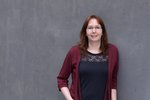
Tutors@eTeach training | Bauhaus University Weimar | eTeach Network Thuringia (Stand no. 17) The free Tutors@eTeach training course offered by the eTeach Network Thuringia will be presented/advertised at the stand. In this training course, students are trained as tutors, receive a certificate for this and can then provide support in the preparation and design of (digital) teaching. At the stand, students and lecturers can find out about participation, the course and the topics of the training (e.g. basics of media didactics, formats and methods of media-enriched teaching, use and design of multimedia learning resources, planning of hybrid courses, use of AI tools, use of digital tools, digital examination formats, copyright and data protection in teaching) and exchange information on the results and experiences from previous training rounds.
Contact: cathleen.schoene[at]uni-weimar.de
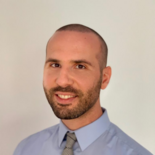

Project-based learning and digital twins in university teaching using MATLAB and Simulink | The MathWorks GmbH (Booth No. 18) Project-based learning is a modern teaching method that encourages students to carry out projects independently. The integration of digital twins plays a central role here, as they enable free access and secure use. By using MATLAB and Simulink, digital twins can be created, connected to corresponding hardware models, recorded and controlled. They also make it possible to compare the behavior of simulation models and their hardware counterparts. This practical learning method can considerably enrich the teaching experience and significantly improve the quality of university teaching.
Contact: aapostol[at]mathworks.com; skerber[at]mathworks.com
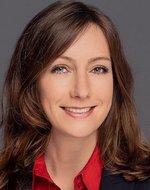
Digitalization of the examination process at universities | UNIwise (Stand no. 19) With our digital examination platform WISEflow, UNIwise supports universities in transforming the creation, administration and approval of examinations for teachers, staff and students. WISEflow, manages the entire examination and assessment process for a variety of examination types.While working in higher education, our founders recognized the need for digital examination and used their experience in research and management to develop WISEflow, a platform that meets the needs of both teaching and learning and administration. In this way, WISEflow helps universities to modernize the examination process, ensure consistency, improve feedback and increase student satisfaction. More than 100 institutions across Europe rely on our expertise.
Contact: Leyla.Doerflinger[at]uniwise.eu

ProTELC project | University of Applied Sciences Erfurt (Booth no. 20) The ProTELC project (2021-2025) aims to strengthen the engineering sciences in Thuringia. Each of the participating Thuringian universities is tasked with implementing specific measures; for example, Erfurt UAS is working on refresher courses to support students and teaching staff as well as a mentoring program.
Contact: sven.varga[at]fh-erfurt.de
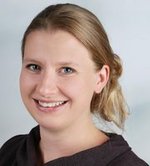
examING - Digitization of competence-oriented testing for engineering bachelor's degree courses | TU Ilmenau (booth no. 21) The examING project, funded by the Stiftung Innovation in der Hochschullehre (Foundation for Innovation in Higher Education), is developing and refining new concepts for digital examinations. The multifaceted examING project and initial solutions are presented in detail. These include the use of software that can be used to simplify the design of online examinations. Visitors to the conference will have the opportunity to try out examination concepts themselves using software solutions that are being tested and their framework conditions improved as part of examING, and the concept of a "blended makerspace" will also be presented. Students will be able to come together for practical work in projects and use existing and new physical spaces for their ideas. In addition, a virtual space will be created that can be used for the preparation and follow-up of projects.
Contact: anna.hertlein[at]tu-ilmenau.de
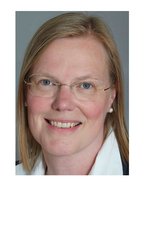
Solutions for digital, competence-oriented testing in engineering degree programs | TU Ilmenau (Stand no. 22) We present a variety of solutions for digitally-supported competence-oriented testing that have been developed as part of the examING project, which is funded by the Foundation for Innovation in University Teaching, and have proven their worth in curriculum implementation: Digital practical experiments in physics, use of SCRUM processes in courses, application-oriented basic biomechatronics teaching, integration of interactive role-playing games in learning processes, and much more! In addition, we present the joint infrastructure to support practical offers in teaching and student peer help: The FabLab@TU-Ilmenau.
Contact: nicola.henze[at]tu-ilmenau.de
Strolling gallery
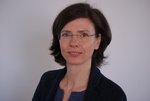
Advanced professional practice in health care@Thuringia (APP@Thüringen) | Ernst Abbe University Jena | Department of Health and Care Background: Healthcare professions (occupational therapy, physiotherapy, nursing, midwifery, etc.) are in the process of professionalization. Undergraduate university qualifications are already available, but there is a lack of in-depth Master's programs. Objective: The aim is to develop a qualification profile that serves as a basis for the development of an in-depth Master's program for selected healthcare professions. Methodological approach: The degree programme was developed using the integrative model of curriculum development at universities according to Jenert et al. 2018. The needs of healthcare providers were identified in expert interviews, and (inter)national qualification profiles for the respective healthcare professions were researched, prioritized and summarized. Results and conclusion: A draft of an interdisciplinary qualification profile is available, which is based on the Advanced AHP Practice Framework from the UK, among others, and can serve as a basis for the development of Master's programs in Thuringia.
Contact: susanne.saal[at]eah-jena.de
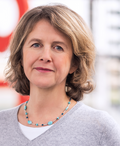
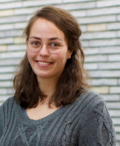
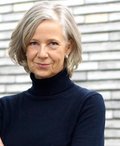
The interlocking of digital and analog learning spaces in research-based learning - an example concept | Baden-Wuerttemberg Cooperative State University The article uses a real course concept from the field of applied nursing and health sciences to address the need for support identified for research-based teaching and learning in two respects. Firstly, it describes the didactic design and the support required by students to complete learning tasks during the theoretical and practical phases of the degree program, both in attendance (synchronous setting) and in the self-learning phases (asynchronous, digital setting). On the other hand, it goes beyond didactic design and highlights the need for technical support when operating in the digital learning space, e.g. when using digital tools, in order to ensure a successful learning journey for teachers and students.
Contact: ecc3[at]cas.dhbw.de; liane.meyer[at]dhbw-karlsruhe.de; lydia.kolano[at]cas.dhbw.de; anja-bettina.zurmuehl[at]cas.dhbw.de;
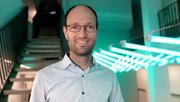
Look at the solution, little one! - Personalizable tasks and anonymous peer review in the basics of electrical engineering | Otto von Guericke University Magdeburg A separate, individual task for each student in a math exercise or homework assignment? Sure, the risk of plagiarism is reduced, but isn't the effort too high? Our semester-accompanying activation method of personalizable tasks and anonymous peer review in the fundamentals of electrical engineering shows how digital tools can solve these problems and how students can evaluate each other. This approach is presented using specific example tasks. Each student receives their own assignment by email and can submit their solution for correction via a learning management system such as Moodle. The students then assess each other using a personalized sample solution. The process is automated and easily scalable. Compared to pure multiple-choice or numerical value tasks, the calculation method and approach can also be evaluated well. In the poster contribution, we would like to present both the motivation from the teacher's point of view and the student's perspective on this type of formative assessment.
Contact: mathias.magdowski[at]ovgu.de
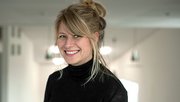
The SDG Campus for more sustainability in studies | Hamburg University of Technology Students are increasingly calling for more sustainability in their studies. The joint project "Open T-Shape for Sustainable Development" of Hamburg University of Technology and Hafencity University Hamburg is supplementing existing specialist university curricula with an additional offer and developing a cross-university learning offer on the SDG Campus platform (www.sdg-campus.de). Teachers from a network consisting of eight universities are creating interdisciplinary courses on the learning platform that enable students to work on the subject-specific basics in a self-directed manner before collaboratively solving open problems with the aim of promoting sustainability skills. A poster provides an overview of the SDG Campus and serves as a starting point for networking on topics such as learner participation, didactic ideas for promoting sustainability skills, assessment and exchange in the digital space.
Contact: annett.lehmann[at]tuhh.de



Final theses with ChatGPT: a blessing or a curse? | Bauhaus University Weimar The artificial intelligence (AI) tool ChatGPT has been available for about a year now. ChatGPT can be used in text-intensive teaching and learning formats in particular. Theses are one such format. However, there is a lack of experience regarding the actual effects of the use of ChatGPT on theses. Accordingly, the first author was instructed in a self-experiment to use ChatGPT whenever possible when writing his bachelor thesis on the topic of AI in university teaching. In order to understand the effects of ChatGPT, an autoethnographic approach was chosen methodically. On the one hand, all considerations regarding the possible use of ChatGPT were documented in logs, and on the other hand, all ChatGPT chats were logged. Both the logs and the chat histories were analyzed and are presented together with the recommendations for students on the use of ChatGPT proposed by Gimpel et al (2023). Accordingly, challenges and potentials of using ChatGPT are identified. In summary, writing a thesis is still a valid learning and examination format. However, with further versions of ChatGPT, an increase in performance is to be expected, accordingly a re-evaluation is necessary from time to time.
Contact: nicolas.schwenke@uni-weimar.de ; heinrich.soebke@uni-weimar.de ; eckhard.kraft@uni-weimar.de
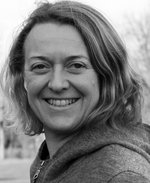
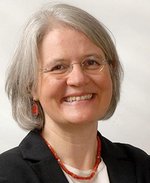
Silent Places - Safe Spaces: Space, urbanity and spirituality in a transcultural setting | FH Erfurt | University of Erfurt A digital learning environment for researching and reflecting on 'special' spatial experiences is being developed in this cooperation project between Erfurt University and Erfurt University of Applied Sciences. The aim is to test a user-friendly digital toolset for interdisciplinary and transcultural exchange in the context of online teaching. Proven tools (e.g. various Moodle applications) are combined with open access apps for the digital recording and communication of spatial settings and their constitution. The project is currently being tested. Interactive digital site explorations in the participants' various cities and countries form the basis for joint reflection. The international framework is ensured/created by existing Erasmus partners in Italy and Turkey as well as an international MA program at the University of Erfurt. Based on existing Erasmus cooperations with Italy and Turkey as well as an international MA program at the University of Erfurt, the starting point for an interdisciplinary and transcultural student exchange based on interactive digital site explorations and their reflection in the different cities and countries of the participants. A blog already established in a previous eTeach project is being further developed and offers long-term reference examples, methodological suggestions and a discussion platform for possible applications in other subjects and university collaborations.
Contact: doris.gstach[at]fh-erfurt.de ; katharina.waldner[at]uni-erfurt.de

Audio material - a chemistry podcast to secure learning objectives | Ernst Abbe University of Applied Sciences Jena An accompanying podcast was recorded for the basic chemistry lecture to improve learning outcomes. By offering short episodes (10-20 minutes) in interview style, students are given the opportunity to repeat the essential content of this lecture regardless of time and place. By limiting themselves to purely auditory access, students have the option of learning the content while going for a walk, for example. This article shows the amount of work involved in creating a podcast and the technical steps required to realize it.
Contact: christoph.koch[at]eah-jena.de
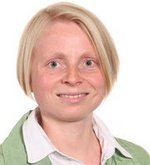
Media-enriched learning in the basic practical course in physics | TU Ilmenau As part of the ExamING project, the digital recording of measured values was established for selected experiments in the basic physics practical course. The students work with Arduino microcontrollers and are provided with program modules to control them. An initial evaluation among the students was very positive, so that in future Arduino microcontrollers can also be taken home to prepare more complex measurement tasks, which can then be carried out on site in the practical course.
Contact: anke.sander[at]tu-ilmenau.de
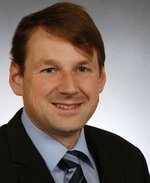

Interactive learning status survey - drawing conclusions about students' skills from the results | University of Cooperative Education Gera-Eisenach The aim of the work is to automatically evaluate students' solutions to a task. The formulation of the task allows for individual solution approaches. Relevant parameters for assessing the quality of the solution should be recorded during the assessment. By relating the task to the competence to be determined, conclusions can be drawn about the students' level of competence. Testing takes place in the labs for the automation technology lecture on programming industrial control hardware.
Contact: christian.doebel[at]dhge.de ; rene.jaeger[at]dhge.de

Student Digital Transformation Agent (SDTA) - the somewhat different HiWi job | KI Campus Imagine that students are change agents - they are consultants in the process of organizational development at the university. This means that they are actively involved in digitalization processes and are on an equal footing with university staff and students, as they fulfil both roles. They provide impetus from and to the relevant bodies: the Rectorate, the Senate, the students, the faculties, etc. Thanks to these change agents, student participation has increased, students can play an active role in shaping the university and communication between the university and students is better. Something like this exists at SRH University Heidelberg! The SDTAs (Student Digital Transformation Agents) were created as part of an HFD project. Two students provide impetus for strategic decisions on the digital transformation of the university. The two senate representatives work closely with the SRH Akademie für Hochschullehre. This HiWi job shows a possibility of student participation that has often not yet been discussed. Because the SDTAs are initiators, they are actively involved in current digitalization topics at the university. With this submission, I would like to encourage universities to involve students in such processes and also with such formats (Hiwi job and remuneration). I would like to show participants a best-practice example and discuss with them the advantages and concerns and what is currently preventing them from establishing something like this.
Contact: alina.diem[at]freenet.de
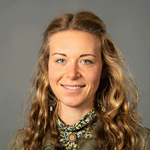
Project ZAKKI - Central contact point for innovative teaching and learning of interdisciplinary skills in AI | Magdeburg-Stendal University of Applied Sciences The project ZAKKI - Central Contact Point for Innovative Teaching and Learning of Interdisciplinary Competencies in AI is located at Magdeburg-Stendal University of Applied Sciences at the Vice-Rectorate for Studies, Teaching and International Affairs and represents an initiative of the funding line of the Federal Ministry of Education and Research (BMBF) for the integration of AI into university teaching. The project was set up to provide teachers and employees at Magdeburg-Stendal University of Applied Sciences with skills in the field of artificial intelligence (AI). The project aims to develop course content, learning materials and training courses on the application, basic concepts and methods as well as the potential and challenges of AI for society as a whole. The planned measures to strengthen AI skills are intended to help qualify future academic specialists in order to meet the increasing demand for AI-relevant skills on the job market. In the project, four teaching-learning labs are working on topic-specific challenges to develop and implement didactically high-quality subject-specific and interdisciplinary teaching-learning offerings for the acquisition of AI skills in all degree programs. Economic, technical, ethical and social aspects are taken into account by the ZAKKI AI.labs.
Contact: maren.huhle[at]h2.de
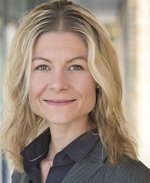
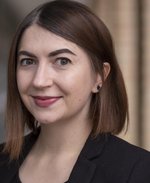
OER portal twillo - Open Educational Resources for University Teaching | TIB-Technische Informationsbibliothek The OER portal www.twillo.de is the central infrastructure in Lower Saxony for searching and publishing open educational materials. The platform is developed and operated in a project network under the leadership of the Hanover Technical Information Library. The main target group is university lecturers and students. OER from all university subject groups, fields of study and subjects are collected on twillo. The materials are diverse and range from individual self-contained teaching/learning objects, such as presentations, worksheets or sample exams, to entire courses, digital tools and instruments. In addition to the platform itself, twillo acts as a consulting and educational center for legal, technical and didactic questions about OER. As part of our poster presentation, we would like to introduce twillo to you in detail and talk to you about the opportunities and challenges of open educational materials.
Contact: noreen.krause[at]tib.eu ; britta.beutnagel[at]tib.eu

GeViLab project | Bauhaus University Weimar GeViLab aims to make a significant contribution to the digital enrichment of learning and teaching concepts in hybrid form. Participation in experiments enables students to apply their theoretical knowledge and skills to solve complex practical tasks, which supports the overall understanding of the subject matter. Participation is often not possible, especially for special and large-scale examinations. Virtual reality offers an elegant and efficient way for students to participate in experiments without compromising the realism and accuracy of the experiment. The project focuses on the development of virtual spaces in which students can participate in recorded special experiments under supervision (moving the laboratory environment into the virtual environment) and discuss the results with teachers and classmates. The virtual experiments are relocated to a 3D room, the possibility of joint exchange (multi-user) with desktop computers or VR glasses is created as part of courses and innovative learning status queries are developed, e.g. on questions of spatial-temporal allocation. In addition, students are given individual and group tasks to check their level of knowledge and understanding.
Contact: lars.abrahamczyk[at]uni-weimar.de


